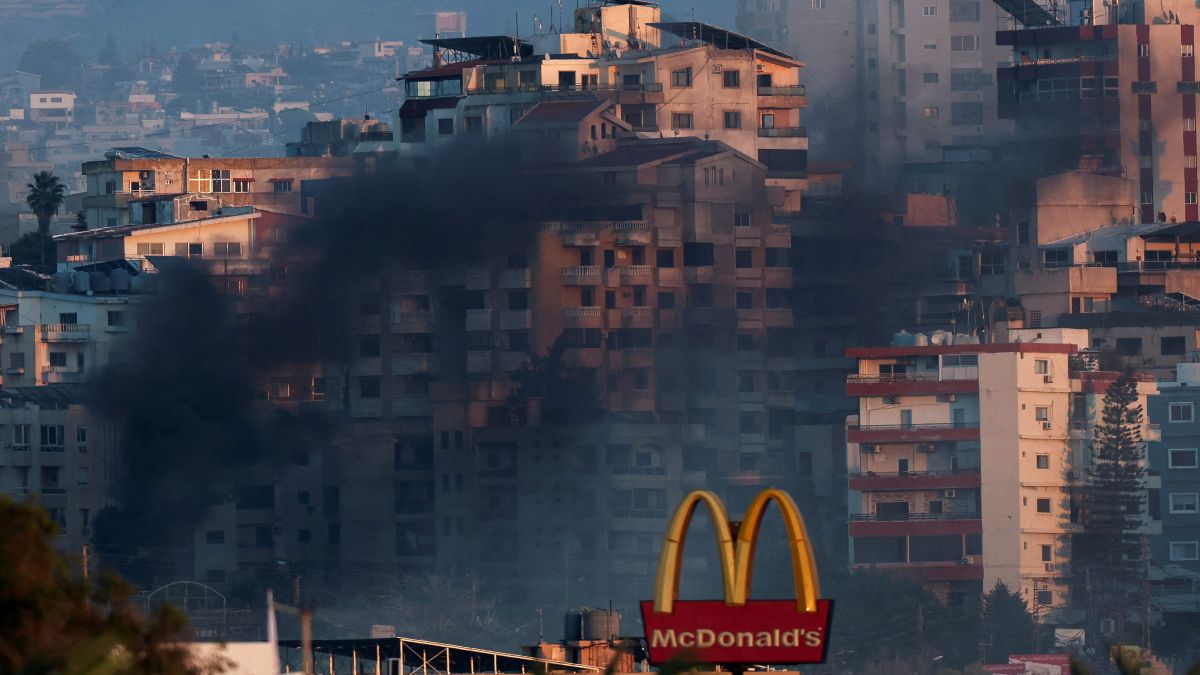It has been a devastating 10 days for Lebanon-based Hezbollah and the people of Lebanon. And, on Wednesday, it got even worse when Israel announced that it would be preparing for a ground offensive in the neighbouring country.
The news of a possible invasion comes amid continued Israeli airstrikes , which have killed more than 615 people in the past three days and injured more than 2,000 others. It also comes as thousands of Lebanese try to flee the country, with many countries such as the United Kingdom and even India issuing advisories to their citizens to leave.
As the world watches on anxiously for the possible ground offensive, with France and the US trying their hardest to broker a ceasefire , we take a closer look at what could be the implications of such a move and what could be the potential outcome.
Ground offensive in the making?
Amid the barrage of missiles that Israel has been raining down on Lebanon since last Friday, the country’s top general on Wednesday said that the troops should prepare for a possible ground operation into Lebanon.
Israel’s chief of staff, Maj Gen Herzi Halevi during a visit to the troops in the north, said, “You hear the jets overhead; we have been striking all day. This is both to prepare the ground for your possible entry and to continue degrading Hezbollah.”
He added that the incursion would be to facilitate the re-entry of thousands of Israelis who were previously displaced from their homes. “To achieve that, we are preparing the process of a manoeuvre,” he said. “It means your military boots, your manoeuvring boots, will enter enemy territory, enter villages that Hezbollah has prepared as large military outposts.”
Entering into Lebanon “will show them what it means to face a professional, highly skilled and battle-experienced force,” Halevi said.
The remarks came amid Israel and Hezbollah trading fire in the air, with the Lebanese-based militant group even firing a ballistic missile at the headquarters of Mossad near Tel Aviv — the first time the group has tried to strike so deeply into Israeli territory. The constant rain of rockets and firing over Lebanon has led to thousands of residents trying to flee the country, with the United Nations saying more than 90,000 people have been displaced by five days of Israeli strikes on Lebanon.
For the possible ground offensive, Israel has already recalled reservists. According to Yedioth Ahronoth newspaper, the Israeli army has summoned those who had been discharged from the army years ago, or had been exempted from service over the past few years.
“This will enable the continuation of combat against the Hezbollah terrorist organisation,” the Israeli military reportedly said.
Beginning of an all-out war?
Defence analysts and geopolitical observers worry that Israel’s imminent ground invasion would be the start of an all-out war between Israel and Hezbollah.
US President Joe Biden in an interview said that “an all-out war is possible”.
Others also agree. Imad Salamey, a professor of political science at the Lebanese American University in Beirut, told Al Jazeera, “The possibility of an Israeli invasion in Lebanon is gaining momentum within the Israeli political and military establishment.
“Should the Israeli government opt for this strategy, it is likely that the invasion could commence within 72 hours, as Israel may believe that Hezbollah’s control and command structure has been sufficiently weakened, leaving the party vulnerable to a swift strike before it has the chance to regroup.”
Iran , who is a backer of Hezbollah, has said that Israel had crossed “all red lines” and their “leaders must understand their crimes won’t go unpunished”. Iran’s Foreign Minister said that his country supported Hezbollah in its “just cause” to defend Lebanon against Israeli “atrocities” and “occupation”.
A day earlier, Iran’s President Masoud Pezeshkian also said that Hezbollah “cannot stand alone” against Israel and called on the UN Security Council to “take immediate action” against the “insane” Israeli escalation.
What an all-out war would mean?
Israel’s possible ground offensive in Lebanon would be catastrophic for all, believe analysts. Many believe that a ground invasion would favour Hezbollah, as the true extent of its military might still remain unknown.
Karim Emile Bitar, a professor of international relations at St Joseph’s University in Beirut, told Al Jazeera, “If there is an Israeli ground invasion of Lebanon, paradoxically, Hezbollah could feel that it is back in its ‘comfort zone’ because they are used to fighting Israeli invasions, they know every single village in south Lebanon. They still have an abundance of fighters ready to try to repel this Israeli invasion.”
Bitar also notes that a ground invasion is a different ball game for Israel and they might witness significant losses because “even if Hezbollah has been weakened, Hezbollah still has the capacity to inflict harm on Israel”.
Moreover, in the case of a ground invasion, Hezbollah fighters would receive support from other Iran-back groups as well as from groups in Yemen and elsewhere in the region.
Others note that the ground offensive is simply a threat by Israel to goad Hezbollah into submission. “Israel is really trying to do something quick, in the hopes that they might be able to bring so much pressure to bear on Hezbollah that they will have no choice but to try to negotiate a quick end to this thing,” Yousef Munayyer, head of the Palestine/Israel Program and senior fellow at the Arab Center Washington DC, told Al Jazeera.
Analysts also believe that if Israel were to put boots on the ground it would also risk international condemnation and greater isolation.
It seems that neither side can win, but both continue the posturing.
With inputs from agencies


)

)
)
)
)
)
)
)
)



